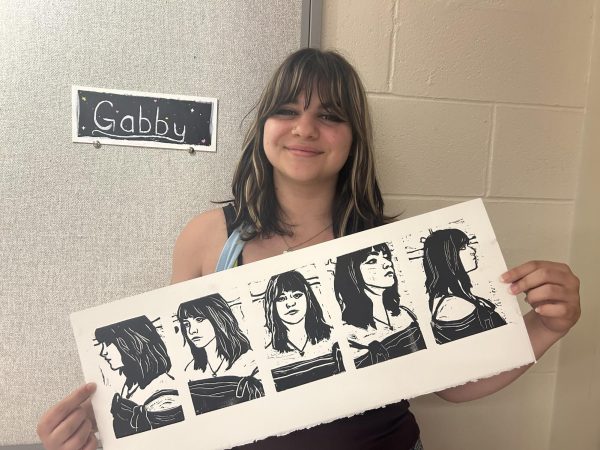Paper vs. Digital Schoolwork
The 2022-2023 school year constitutes a new era of learning for students in America’s education system. From 2020 to now, Covid-19 paused, developed, then restarted learning. While it is a fact that even without Covid-19 to speed up this evolution, education would have still progressed, the virus accelerated this process exponentially. With all new developments, however, there are both positive and negative effects that should be analyzed in an effort to be sure that continued development heads in the correct direction. When it comes to the changes in the education system, one negative impact on students has been a drastic increase in screen time, which is debilitating to young minds. On the other hand, teachers who continue to assign paperwork are adding to irreversible harm to the environment. Though both have their issues, work obviously needs to get completed one way or another, so teachers must choose between the two methods. It is difficult to see if online or paper schoolwork is more beneficial to students. So, is there a correct answer? Let’s discuss.
Some teachers across the country continuously deny switching to online assignments for students. Smithtown High School East’s Mrs. Corso is one of them, claiming “it takes away screen time; kids have so much screen time already with social media, why should they also have to be staring at a screen while they’re in class? Devices are also a huge distraction because students are often not paying attention while on their devices.”
Teachers who decide to continue with paper schoolwork give their students a short break from staring at screens, lower the probability of cheating, and teach students to remain organized. Similarly to students needing to remain organized, it is more difficult for teachers to remain organized this way. They must keep track of assignments because collected work from hundreds of students can get mixed up and lost very easily. With solely paper assignments and several classes, misplaced assignments are almost never found, but a student also cannot simply go online to find another copy of their work. While Corso’s statement is agreed upon by many teachers, most have transformed their classrooms to worlds of keyboard tapping and Chromebook chargers.
The ever expanding amounts of technology in America is increasingly apparent in schools. Online learning during the 2020 shutdown caused many school districts to supply students with Chromebooks. Inequity between districts quickly becomes apparent in school buildings, which leads to bullying and some students being presented with more opportunities than others. With bullying and cyber bullying already being such an issue in the school system, adding other ways for students to be noticed has not been at all beneficial. But on the contrary, digital classrooms reduce paper waste, increase computer skills, and allow for easy access to lessons and classroom materials.
The extent to which this decision affects students is rarely considered. Many educators choose to teach either by using technology or not based solely on what is most convenient to them. Those who make that decision based upon what is best for their students genuinely have a greater impact on them, not only in the classroom but throughout life. When a teacher is willing to provide options for how students learn, the student is going to choose what works best for them, and helps them better understand material. Classes that are better understood tend to spike interests in areas to study in college and work. It may seem implausible to assume that something as little as assigning work two ways can alter the path of your life, but middle/high school is the time when people start considering different life paths. Providing options to explore the way a student learns best sets the student up for success.
There is no distinct answer in the dispute between paper and digital schoolwork; maybe the answer lies in a hybrid of the two. However, it’s obvious that students must be given more of a right to choose the method that best helps them succeed. We are constantly told to stick up for ourselves, so why don’t we start with improving the way we learn?












